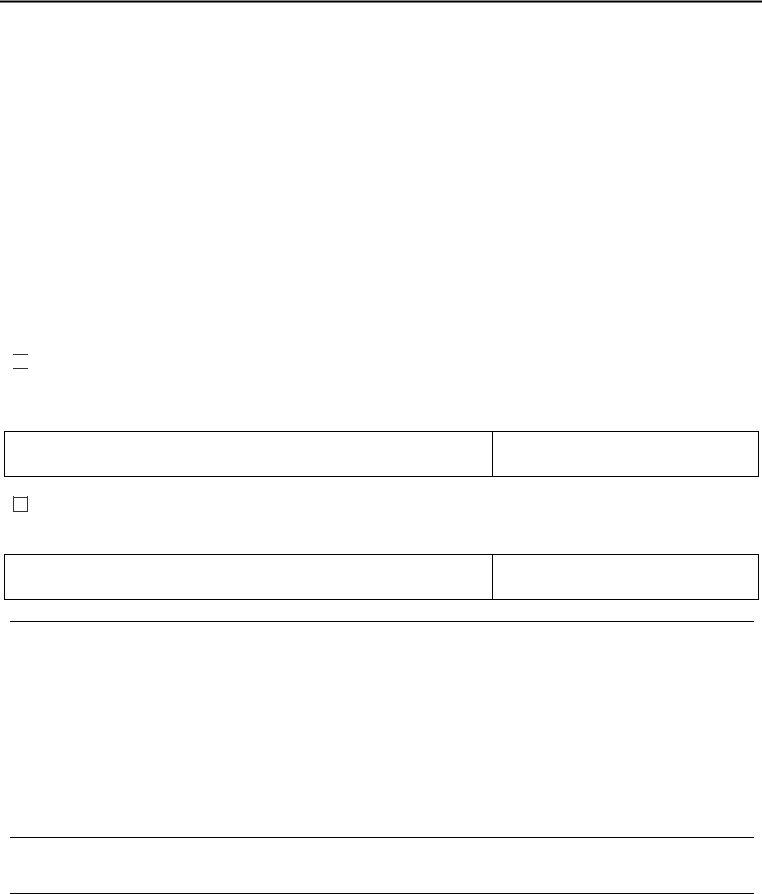The B 257 form is a document that is used by businesses to report the annual wages paid to employees. The information reported on this form is used by the IRS to determine whether or not a business owes any money in taxes. This form must be filed annually, and must include the name and Social Security number of each employee, as well as their annual wage amount. Filing this form correctly is important for ensuring that your business is in compliance with IRS tax regulations. Let's take a closer look at what needs to be included on the B 257 form.
| Question | Answer |
|---|---|
| Form Name | B 257 Form |
| Form Length | 3 pages |
| Fillable? | No |
| Fillable fields | 0 |
| Avg. time to fill out | 45 sec |
| Other names | b257, form b257, how to b257, bankruptcy form b257 |

B257 (Form 257 – Subpoena to Produce Documents, Information, or Objects or To Permit Inspection in a Bankruptcy Case or Adversary Proceeding) (12/13)
UNITED STATES BANKRUPTCY COURT
_________________________________________ District of _________________________________________
In re __________________________________________
Debtor
Case No. _____________________
(Complete if issued in an adversary proceeding)
_________________________________________ |
Chapter ___________ |
|
|
||
Plaintiff |
|
|
v. |
Adv. Proc. No. ________________ |
|
__________________________________________ |
||
|
||
Defendant |
|
SUBPOENA TO PRODUCE DOCUMENTS, INFORMATION, OR OBJECTS OR TO PERMIT INSPECTION OF PREMISES IN A BANKRUPTCY CASE (OR ADVERSARY PROCEEDING)
To: ________________________________________________________________________________________
(Name of person to whom the subpoena is directed)
Production: YOU ARE COMMANDED to produce at the time, date, and place set forth below the following documents, electronically stored information, or objects, and to permit inspection, copying, testing, or sampling of the material:
PLACE
DATE AND TIME
Inspection of Premises: YOU ARE COMMANDED to permit entry onto the designated premises, land, or
other property possessed or controlled by you at the time, date, and location set forth below, so that the requesting party may inspect, measure, survey, photograph, test, or sample the property or any designated object or operation on it.
PLACE
DATE AND TIME
The following provisions of Fed. R. Civ. P. 45, made applicable in bankruptcy cases by Fed. R. Bankr. P. 9016, are attached – Rule 45(c), relating to the place of compliance; Rule 45(d), relating to your protection as a person subject to a subpoena; and Rule 45(e) and 45(g), relating to your duty to respond to this subpoena and the potential consequences of not doing so.
Date: _____________
CLERK OF COURT |
|
|
OR |
________________________ |
________________________ |
Signature of Clerk or Deputy Clerk |
Attorney’s signature |
The name, address, email address, and telephone number of the attorney representing (name of party)
____________________________ , who issues or requests this subpoena, are:
Notice to the person who issues or requests this subpoena
If this subpoena commands the production of documents, electronically stored information, or tangible things, or the inspection of premises before trial, a notice and a copy of this subpoena must be served on each party before it is served on the person to whom it is directed. Fed. R. Civ. P. 45(a)(4).

B257 (Form 257 – Subpoena to Produce Documents, Information, or Objects or To Permit Inspection in a Bankruptcy Case or Adversary Proceeding) (Page 2)
PROOF OF SERVICE
(This section should not be filed with the court unless required by Fed. R. Civ. P. 45.)
I received this subpoena for (name of individual and title, if any): ______________________________________________
on (date) __________ .
I served the subpoena by delivering a copy to the named person as follows: ____________________________________
___________________________________________________________________________________________________
__________________________________ on (date) ___________________ ; or
I returned the subpoena unexecuted because: ____________________________________________________________
___________________________________________________________________________________________________
Unless the subpoena was issued on behalf of the United States, or one of its officers or agents, I have also tendered to the witness the fees for one day’s attendance, and the mileage allowed by law, in the amount of $ _______________________ .
My fees are $ _________ for travel and $_________ for services, for a total of $_________ .
I declare under penalty of perjury that this information is true and correct.
Date: _______________
________________________________________________
Server’s signature
________________________________________________
Printed name and title
________________________________________________
Server’s address
Additional information concerning attempted service, etc.:

B257 (Form 257 – Subpoena to Produce Documents, Information, or Objects or To Permit Inspection in a Bankruptcy Case or Adversary Proceeding) (Page 3)
Federal Rule of Civil Procedure 45(c), (d), (e), and (g) (Effective 12/1/13)
(made applicable in bankruptcy cases by Rule 9016, Federal Rules of Bankruptcy Procedure)
(c)Place of compliance.
(1)For a Trial, Hearing, or Deposition. A subpoena may command a person to attend a trial, hearing, or deposition only as follows:
(A)within 100 miles of where the person resides, is employed, or regularly transacts business in person; or
(B)within the state where the person resides, is employed, or regularly transacts business in person, if the person
(i)is a party or a party’s officer; or
(ii)is commanded to attend a trial and would not incur substantial
expense.
(2)For Other Discovery. A subpoena may command:
(A)production of documents, or electronically stored information, or things at a place within 100 miles of where the person resides, is employed, or regularly transacts business in person; and
(B)inspection of premises, at the premises to be inspected.
(d)Protecting a Person Subject to a Subpoena; Enforcement.
(1)Avoiding Undue Burden or Expense; Sanctions. A party or attorney responsible for issuing and serving a subpoena must take reasonable steps to avoid imposing undue burden or expense on a person subject to the subpoena. The court for the district where compliance is required must enforce this duty and impose an appropriate sanction — which may include lost earnings and reasonable attorney's fees — on a party or attorney who fails to comply.
(2)Command to Produce Materials or Permit Inspection.
(A)Appearance Not Required. A person commanded to produce documents, electronically stored information, or tangible things, or to permit the inspection of premises, need not appear in person at the place of production or inspection unless also commanded to appear for a deposition, hearing, or trial.
(B)Objections. A person commanded to produce documents or tangible things or to permit inspection may serve on the party or attorney designated in the subpoena a written objection to inspecting, copying, testing or sampling any or all of the materials or to inspecting the premises — or to producing electronically stored information in the form or forms requested. The objection must be served before the earlier of the time specified for compliance or 14 days after the subpoena is served. If an objection is made, the following rules apply:
(i)At any time, on notice to the commanded person, the serving party may move the court for the district where compliance is required for an order compelling production or inspection.
(ii)These acts may be required only as directed in the order, and the order must protect a person who is neither a party nor a party's officer from significant expense resulting from compliance.
(3)Quashing or Modifying a Subpoena.
(A)When Required. On timely motion, the court for the district where compliance is required must quash or modify a subpoena that:
(i)fails to allow a reasonable time to comply;
(ii)requires a person to comply beyond the geographical limits specified in Rule 45(c);
(iii)requires disclosure of privileged or other protected matter, if no exception or waiver applies; or
(iv)subjects a person to undue burden.
(B)When Permitted. To protect a person subject to or affected by a subpoena, the court for the district where compliance is required may, on motion, quash or modify the subpoena if it requires:
(i)disclosing a trade secret or other confidential research, development, or commercial information; or
(ii)disclosing an unretained expert's opinion or information that does not describe specific occurrences in dispute and results from the expert's study that was not requested by a party.
(C)Specifying Conditions as an Alternative. In the circumstances described in Rule 45(d)(3)(B), the court may, instead of quashing or modifying a subpoena, order appearance or production under specified conditions if the serving party:
(i)shows a substantial need for the testimony or material that cannot be otherwise met without undue hardship; and
(ii)ensures that the subpoenaed person will be reasonably compensated.
(e)Duties in Responding to a Subpoena.
(1)Producing Documents or Electronically Stored Information. These procedures apply to producing documents or electronically stored information:
(A)Documents. A person responding to a subpoena to produce documents must produce them as they are kept in the ordinary course of business or must organize and label them to correspond to the categories in the demand.
(B)Form for Producing Electronically Stored Information Not Specified. If a subpoena does not specify a form for producing electronically stored information, the person responding must produce it in a form or forms in which it is ordinarily maintained or in a reasonably usable form or forms.
(C)Electronically Stored Information Produced in Only One Form. The person responding need not produce the same electronically stored information in more than one form.
(D)Inaccessible Electronically Stored Information. The person
responding need not provide discovery of electronically stored information from sources that the person identifies as not reasonably accessible because of undue burden or cost. On motion to compel discovery or for a protective order, the person responding must show that the information is not reasonably accessible because of undue burden or cost. If that showing is made, the court may nonetheless order discovery from such sources if the requesting party shows good cause, considering the limitations of Rule 26(b)(2)(C). The court may specify conditions for the discovery.
(2)Claiming Privilege or Protection.
(A)Information Withheld. A person withholding subpoenaed
information under a claim that it is privileged or subject to protection as
(i)expressly make the claim; and
(ii)describe the nature of the withheld documents, communications, or tangible things in a manner that, without revealing information itself privileged or protected, will enable the parties to assess the claim.
(B)Information Produced. If information produced in response to a subpoena is subject to a claim of privilege or of protection as trial- preparation material, the person making the claim may notify any party that received the information of the claim and the basis for it. After being notified, a party must promptly return, sequester, or destroy the specified information and any copies it has; must not use or disclose the information until the claim is resolved; must take reasonable steps to retrieve the information if the party disclosed it before being notified; and may promptly present the information under seal to the court for the district where compliance is required for a determination of the claim. The person who produced the information must preserve the information until the claim is resolved.
…
(g)Contempt. The court for the district where compliance is required – and also, after a motion is transferred, the issuing court – may hold in contempt a person who, having been served, fails without adequate excuse to obey the subpoena or an order related to it.
For access to subpoena materials, see Fed. R. Civ. P. 45(a) Committee Note (2013)